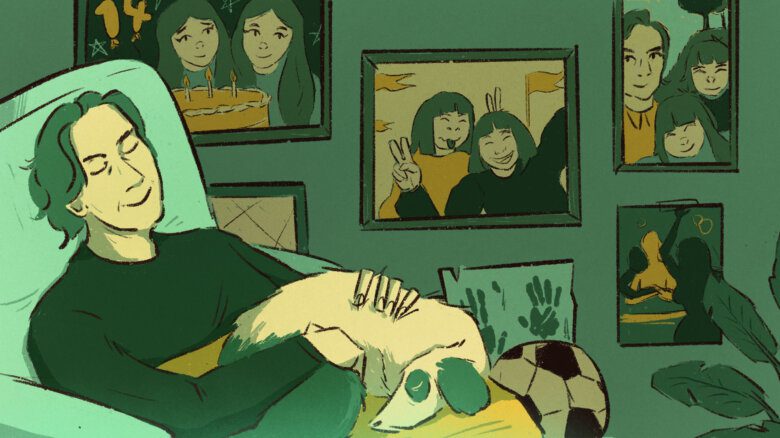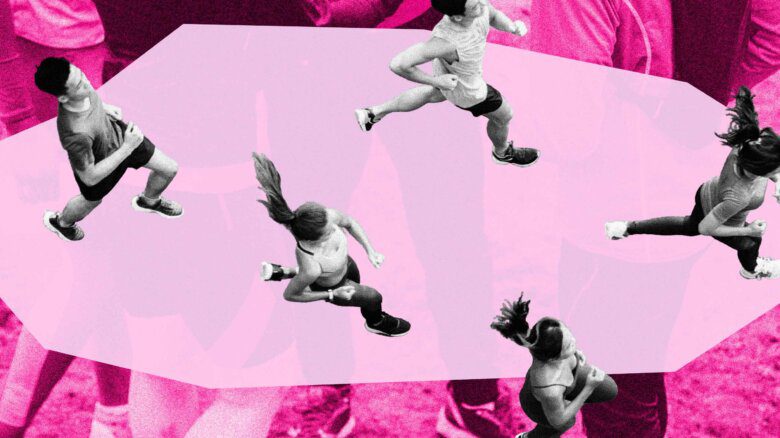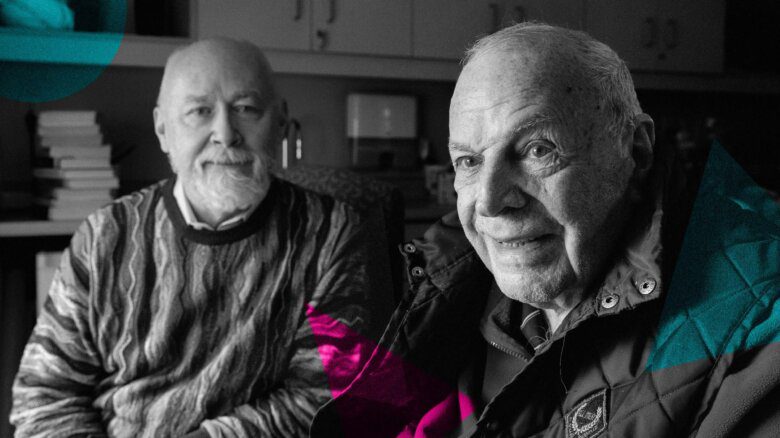In our nine-part series, Queering Family, we meet people across North America who are redefining what it means to build and sustain a family. Whether supporting a trans teen in coming out, creating a drag family from scratch or helping to raise someone else’s kids, these parents, children and caregivers illustrate the myriad ways that fostering loving networks might just be a queer superpower. Previously, we’ve seen how community care is central to trans-supportive families. Similarly, the story below explores how community care is key for prospective parents and their future child.
It’s not just your imagination: the number of queer and trans people who want to raise families is on the rise. According to 2019 data from the American non-profit Family Equality, 77 percent of LGBTQ2S+ millennials reported they were either already parents or were considering having children. In fact, millennials were 44 percent more likely to want kids than their older queer and trans counterparts.
Despite the surge, queer and trans people continue to face barriers in accessing reproductive and fertility care. Kristin Liam Kali, a Seattle-based midwife, knows this all too well. Over their 25-year career, they’ve worked with hundreds of queer and trans parents-to-be who’ve actively faced a gap in care. In 2022, Kali’s desire to redress the issue gave birth to a different kind of baby: Queer Conception, a fertility guide for queer and trans people. As part of our Queering Family series, Xtra caught up with Kali to talk about their book and their best advice for parents-to-be.
What made you want to write about fertility geared toward queer and trans people?
When you look for information about fertility and reproduction on websites or in medical research articles or in statements by healthcare organizations, it’s like we don’t even exist. Unless you’re talking about fertility clinics that are specifically marketing to us and want queer and trans people to give them money. Point blank, we do exist, we’re having families and we deserve information that is by, for and about us. Writing this book was a way of supporting people in my own community.
On a more personal level, I became a midwife because I believe that becoming a parent is a transformational, integral aspect of human development. We take on an identity as a parent, one that completely changes everything about how we live life.
I’ve never tried to conceive, but I have tried to navigate the healthcare system as a queer and trans person. Most of the time it’s hard to find information I can trust.
Precisely. Fertility clinics and medicine exist, but they are designed for cis, hetero people having issues with infertility. So, treatment plans and decision-making are often guided by research that doesn’t apply to queer and trans people with no known infertility issues. When you look at single parents by choice and same-sex couples, the very little bit of research that has been done actually shows that we don’t benefit from infertility medicine if we’re fertile.
I want practitioners to work with how the body works, rather than trying to fix something that’s not broken. People, regardless of gender and sexuality, might be looking for someone to take the reins if they’re struggling with infertility. But if someone is just looking to get pregnant and doesn’t need solutions for infertility specifically, let’s focus on empowerment and embodiment and agency.
You’ve said that a Pride flag in a clinic doesn’t guarantee that the physicians are LGBTQ2S+-friendly. How can people assess whether a provider will be a good fit?
Call them up and see how they answer the phone. Do they presume your gender by the sound of your voice? Do they assume the gender of your partner? You can also look at studies that have been done on transgender health and queer family-building. Who are the authors and which clinics do they work in?
Asking around to find providers in your community who cater to your specific needs is also a smart idea. Who are the fat-positive providers? Who are the BIPOC providers? Who has their shit together around racism and disability? You shouldn’t have to put up with discrimination just because you’re entering what is culturally understood to be a cis, hetero institution.
You talk about another underserved population in your book: poly families. What should they be considering before trying to conceive?
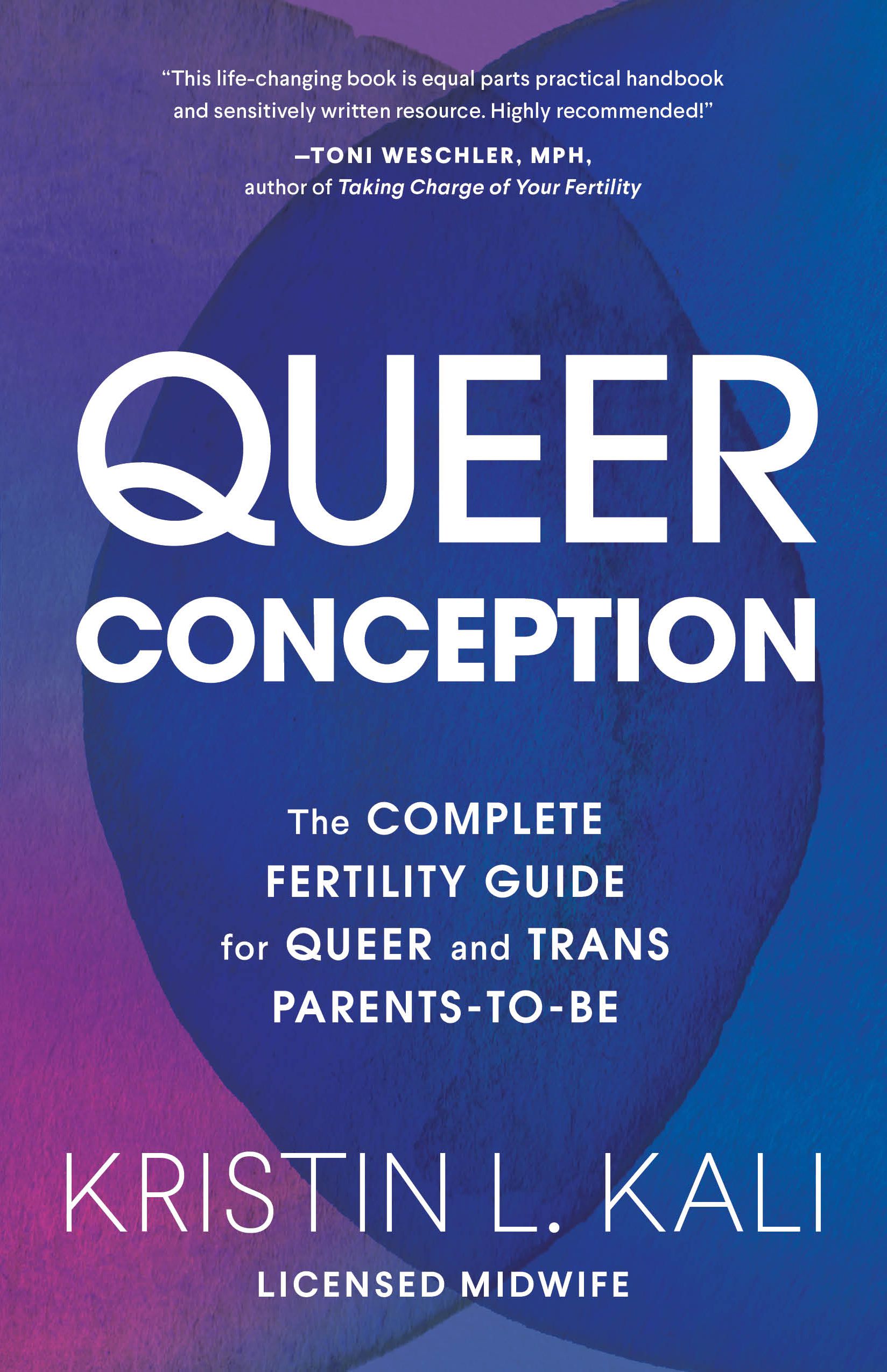
Negotiation, boundary-setting, self-awareness and mutual accountability are all part of the fabric of polyamorous family structures. Bringing that level of intention to having a baby means that you’re going to take the way that you normally navigate your relationship and make it about 10 times deeper.
Aspects of power within the relationship—factors like who owns the deed to the house or who is biologically related to the child—get magnified because every new parent is deeply vulnerable, psychologically and emotionally. We revisit our attachment styles when we become parents and the more partners there are in a family, the more that comes up for processing. The upside is more support, more hands, more people to care for the baby.
You have a section in the book dedicated to “queering pregnancy.” What does that mean to you?
I want people to be able to step outside prescribed cultural norms surrounding gestation and giving birth, and to make decisions based on their own experiences. Queerness refers to creating our lives in ways that serve us, rather than ways that are prescribed. Just because you’re pregnant doesn’t mean you have to default to what the culture expects from you.
Let’s take the concept of “mother.” You may be a mother who did not give birth and you don’t see yourself reflected anywhere. You may wonder, “Gosh, how do I fit in this picture?”—especially if your partner is doing other culturally “motherly” things like lactating and feeding and you’re not. In those instances, the dominant culture undermines our competence and our sense of self-knowing and self-worth. I want to bridge that gap and bring people back to themselves and to their rightful place in their own families.
You focus a lot on the mental health of parents-to-be during conception and beyond.
If mental health isn’t part of the conversation, you’re leaving out a huge aspect of care. There is trauma in walking through the world as a queer or trans person. We have to take into consideration trauma and post-traumatic stress, and how prior traumatic experiences impact us during times of deep vulnerability. Having a trauma-informed approach around pregnancy, birth and navigating new parenthood is important—for partners who give birth and those who don’t.
5 tips for aspiring parents
1. Just because you aren’t cis and heterosexual doesn’t mean you don’t deserve to become a parent
2. Conception doesn’t have to be a medical experience—fertility clinics don’t need to be your go-to option
3. Having a trauma-informed approach to conception and parenthood can be vital
4. Becoming pregnant doesn’t mean defaulting to what the dominant culture expects of you
5. Find support—community care is key, for you and for your future child.
We know that pregnancy can affect mental health, but I was surprised to learn that non-gestational parents are at a higher risk of depression when their partners are gestating. What can people do to protect their mental health in these situations?
Becoming a parent changes who you are, so having a therapist who’s a good match for you is invaluable. You might want to seek out someone who has experience in perinatal mental health, or look for a relationship therapist if you’re becoming a parent in partnership or alongside co-parents. Whether you have a romantic partner, multiple partners or non-romantic co-parents, therapy can be beneficial as you navigate this transition. That said, access varies based on where you live and the financial resources you have. That’s where community care comes in.
Queer and trans parents might find they suddenly have a lot in common with cis, hetero parents in the months after a child is born because caring for a newborn is a unifying experience. On the other hand, queer and trans parents walking into a room of cis, hetero Karens will likely find there are aspects of themselves that aren’t going to be reflected in that space or can even be talked about. So I think that queer and trans people finding and supporting each other after we’ve had babies helps to support the health of our families in the long term.
Also, kids are super observant. If they experience a community of families like theirs, their own sense of otherness will be minimized—and their own sense of normalcy and validation will grow.
Let’s say a trans person is thinking about carrying a child or providing sperm, but is on the fence. What are some of the deciding factors they should consider?
I think it’s really different for folks who produce sperm versus folks who produce eggs—and it’s going to be even more individualized for intersex people.
We know that people on testosterone who wish to get pregnant can stop taking their gender-affirming hormones and their menses will resume. At that point, their reproductive capacity will resemble that of other individuals their age.
For transfeminine folks, it’s a bit more complicated. Taking hormones may actually limit future options. There are fertility clinics that welcome transfeminine folks who want to pay to store their sperm, but people are often told to come to the clinic just a couple of times. Then when folks come to me they’ll tell me that they’ve banked sperm but I’ll find out that it’s only, like, four vials—which is such a small amount. Going through that process is really complicated when people are first starting to transition and are emotionally vulnerable. But clinics are doing a disservice by not encouraging that population to store a more workable amount of sperm.
There’s a misconception that people who’ve had top surgery can’t chest feed. Do you have tips on that front?
Many people have the capability to lactate under the right hormonal circumstances. Inducing lactation is absolutely possible for trans women and can be deeply affirming. For transmasculine people who’ve had top surgery, however, the duct work that allows for lactation may have been severed. Surgeries that involve nipple grafting sever the pathway, for example, so that would inhibit the ability to lactate.
That being said, it is possible to feed your baby—whether they’re getting donor human milk, your partner’s milk or formula—through a supplemental nursing system that allows the baby to latch on to your chest and feed.
You address another common fertility myth in your book: the turkey baster. Please unpack that.
Wow, where do we start with the turkey baster? Obviously, it’s a bit comical. I think the idea persists because it involves kitchens, the heart of our home, and nothing is more DIY than the concept of using a turkey baster. But let’s break this down a bit. Human ejaculate is about two to four ccs—a couple of tablespoons. If you’ve ever basted a turkey, we’re talking major volume difference. Also, there’s no need to have a huge turkey baster in your body—that’s why we have syringes.
What is true is that queer and trans people can totally do conception ourselves. If you have someone in your life who has sperm and is willing to donate, is trustworthy and is safe in terms of STI transmission risk, you can go about building your family yourself.
Sometimes, no matter how hard people try, it’s not possible to conceive. And for some of those people, adoption isn’t likely because they’re trans or they’re sex workers or they’re low-income or whatever the case may be. What advice do you have for them?
First and foremost, I want them to recognize that our world is governed by capitalism and just because you aren’t affirmed by that structure, it doesn’t mean that you don’t “deserve” to be a parent. Your desire to give love to a tiny human being is something priceless.
There are so many ways to have kids in your life. And there are creative ways to build a family and to become a parent with other individuals. Co-parenting is a life-long commitment, so finding the right people to build a family with is easier said than done. It shouldn’t be entered into lightly, but it is possible. So keep asking, keep seeking, keep talking and find ways to craft your life in a way to make sense to you.
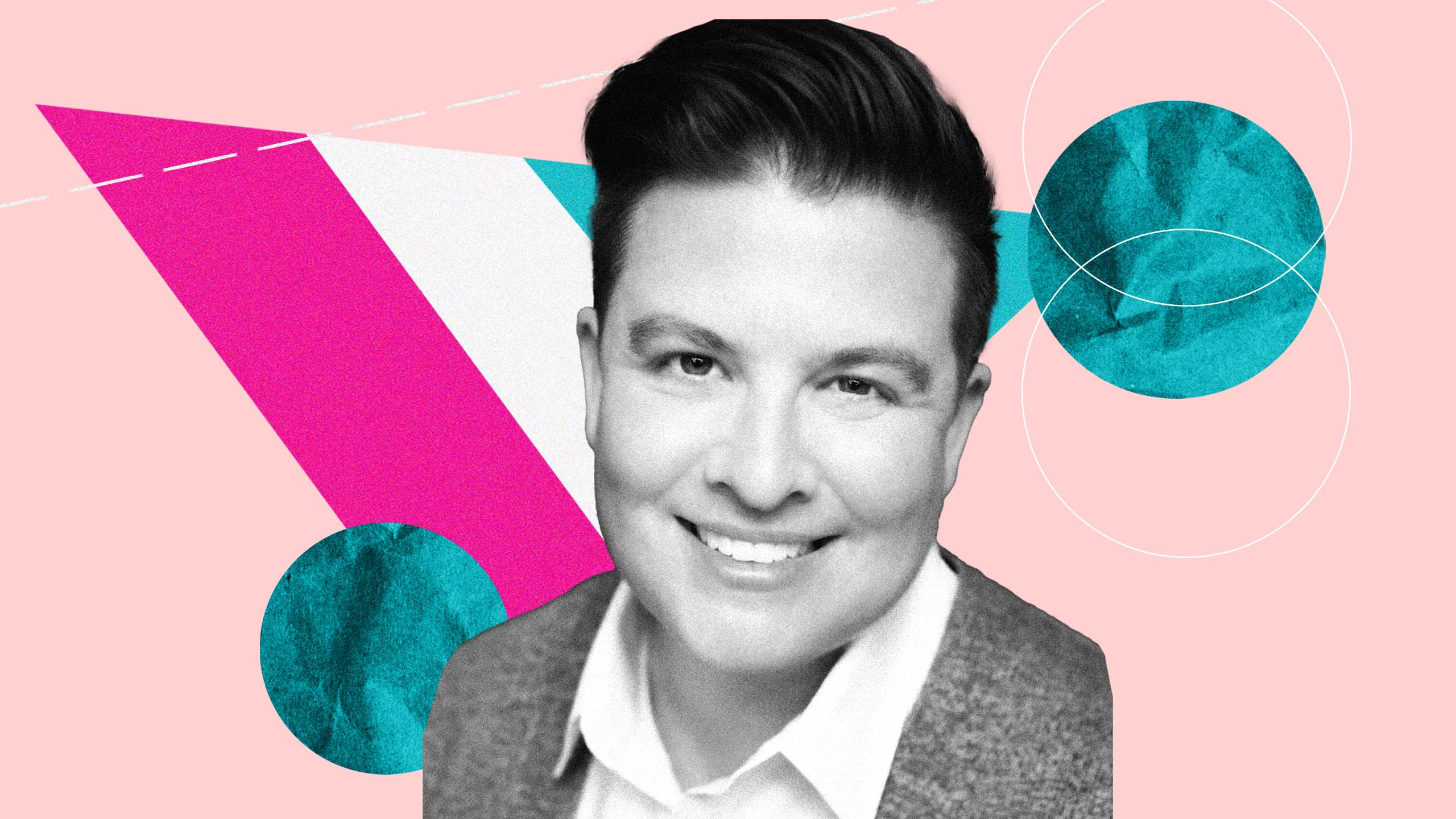
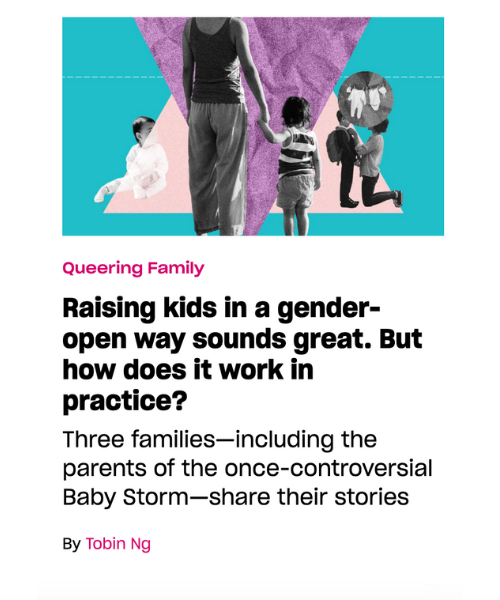
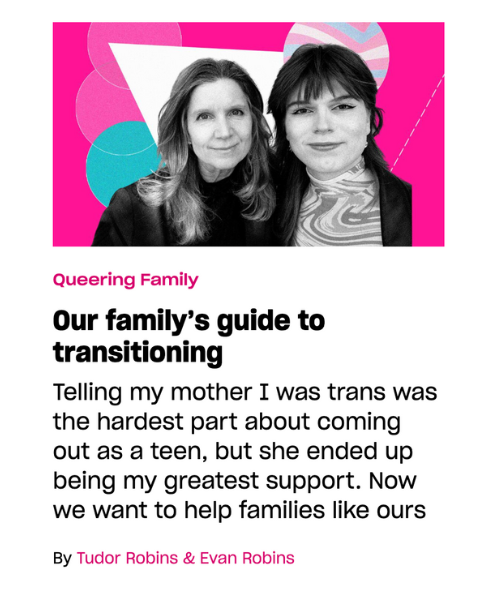
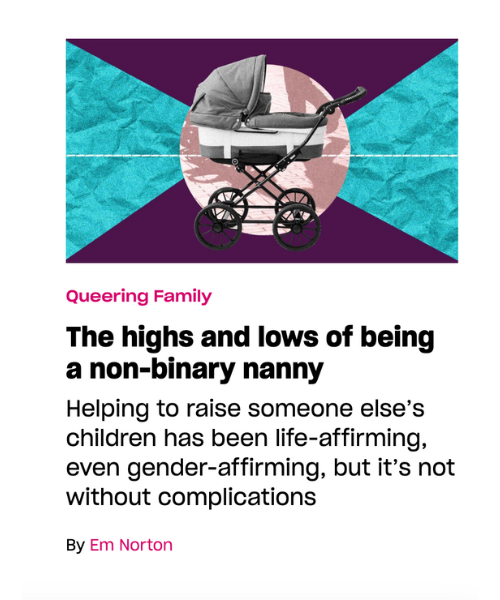
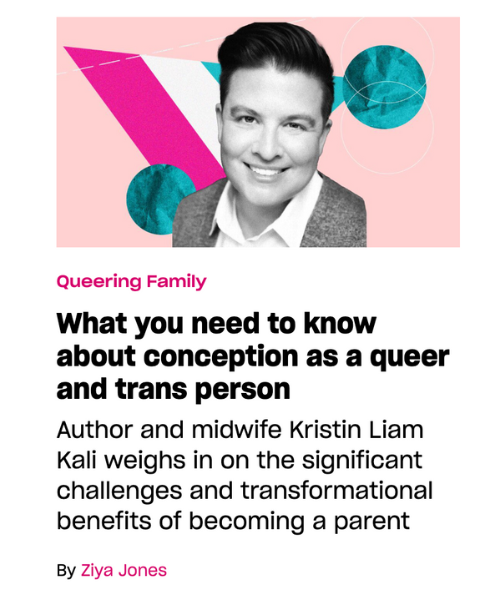
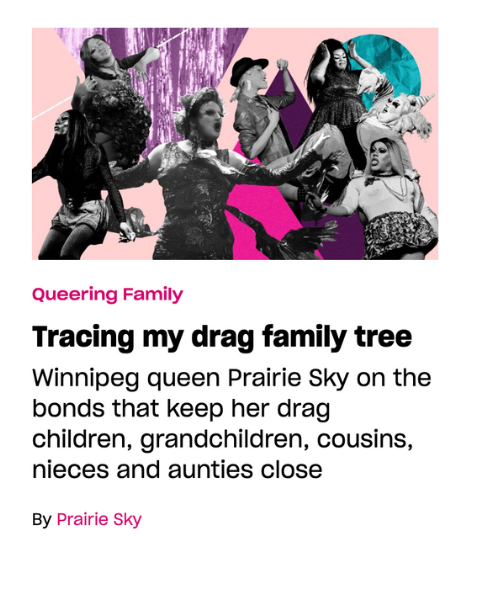
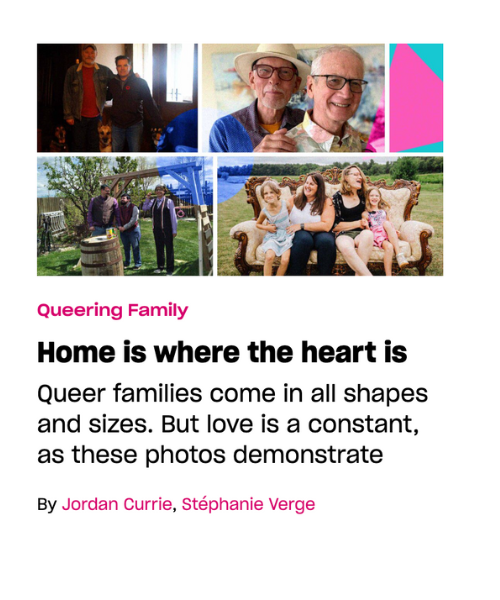
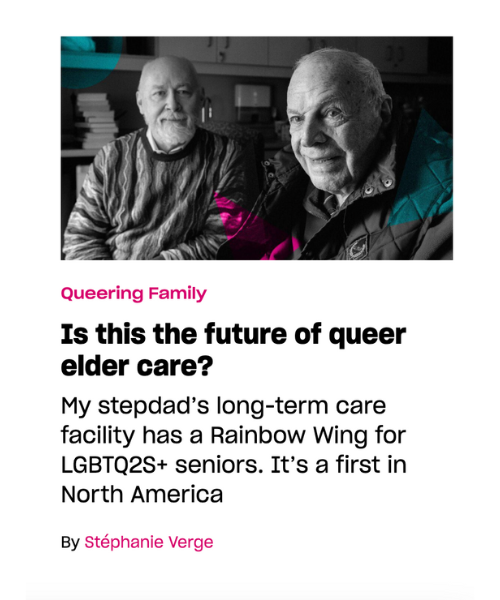
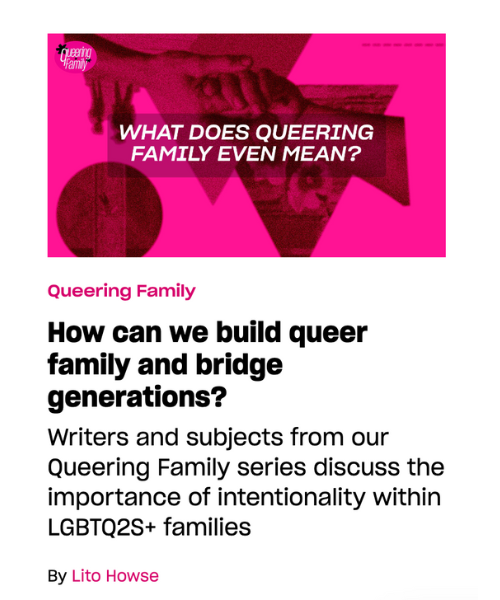
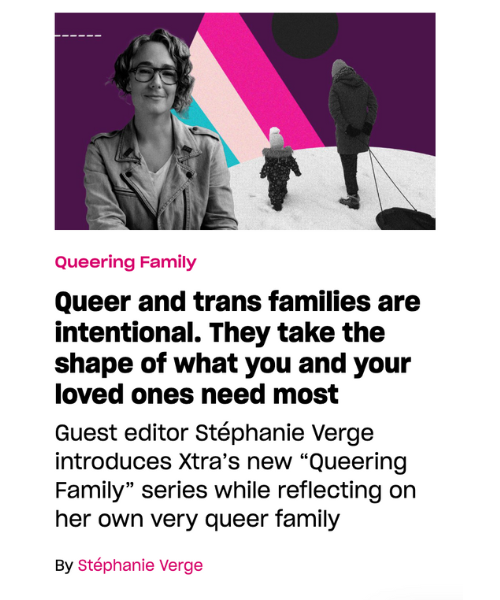

 Why you can trust Xtra
Why you can trust Xtra